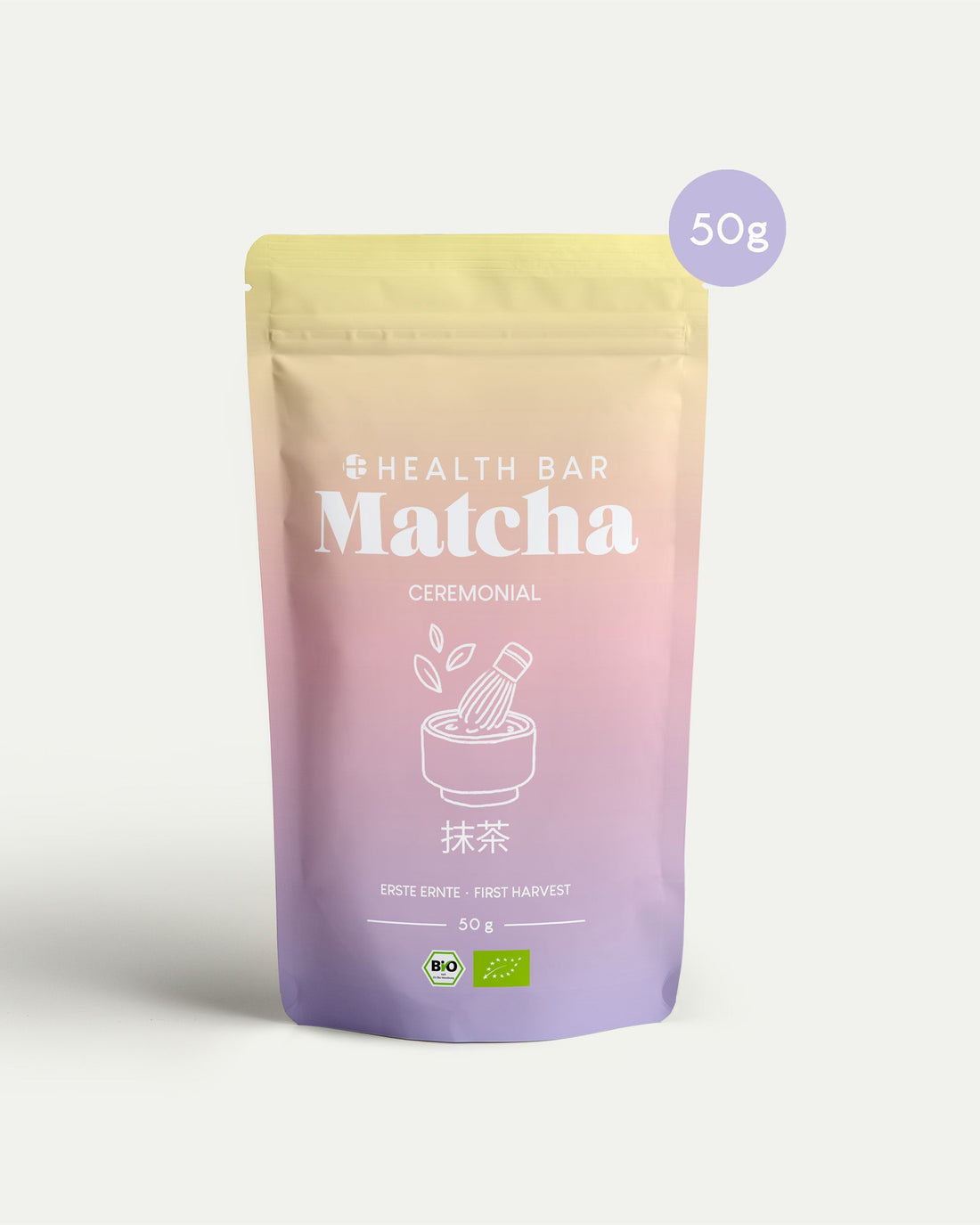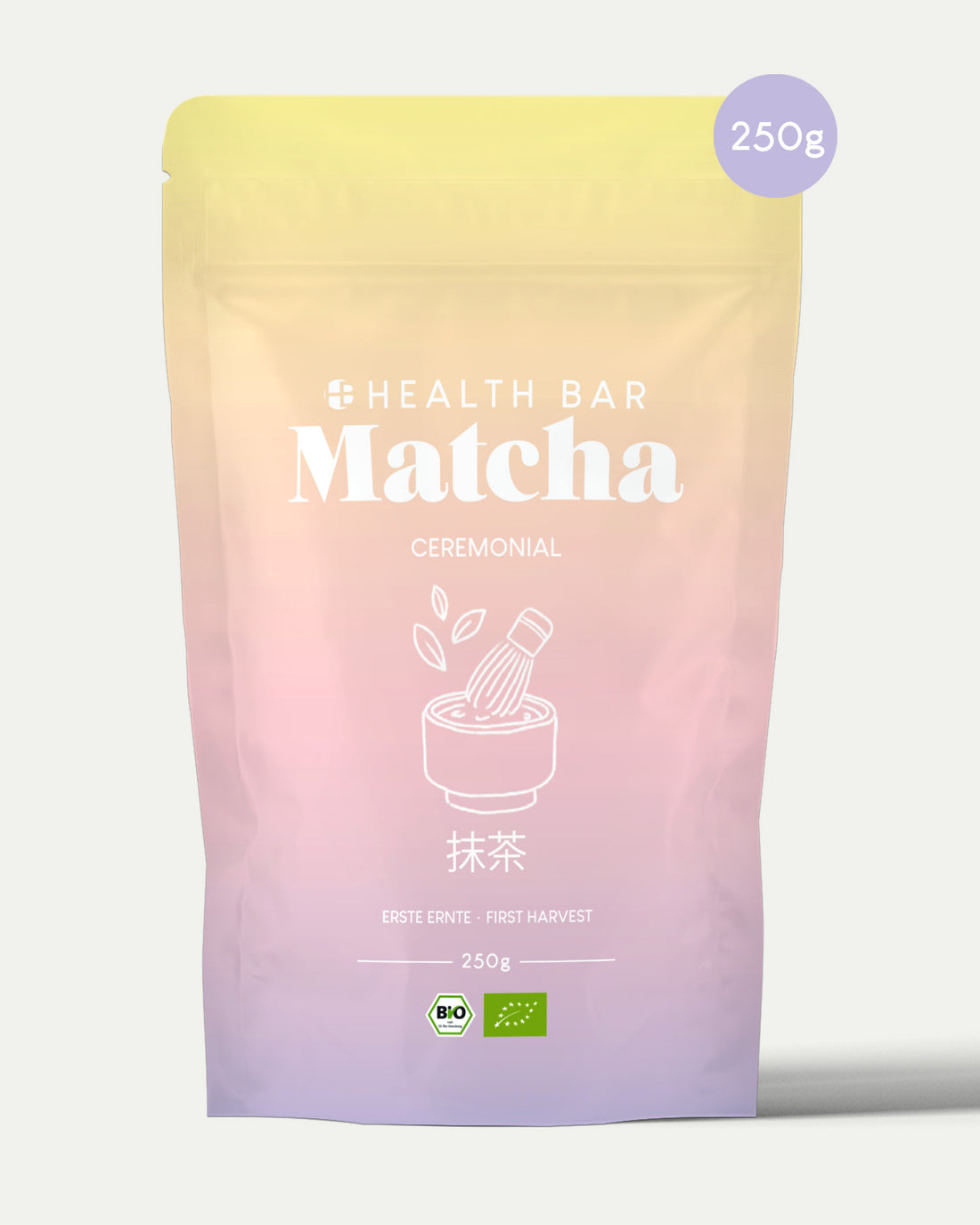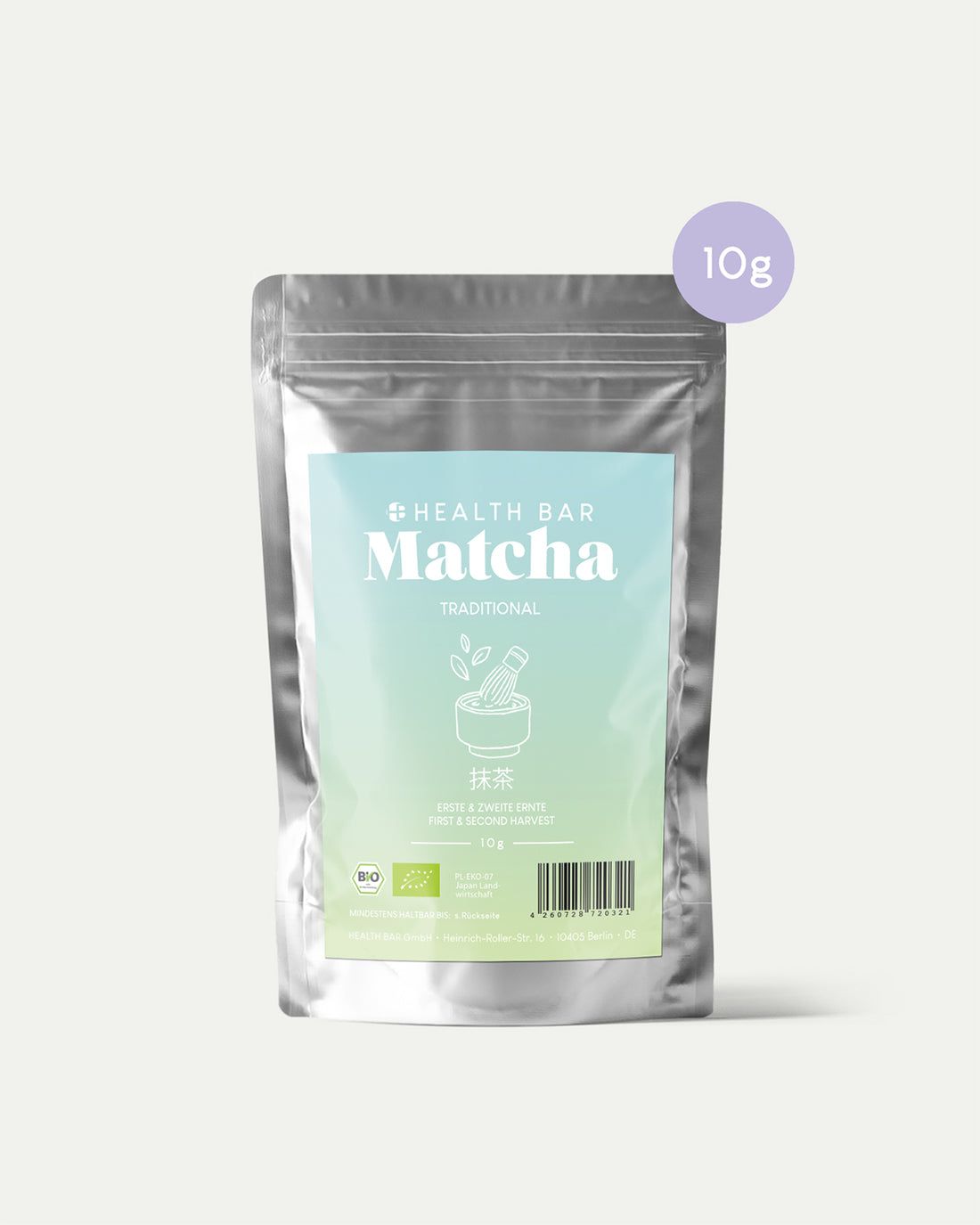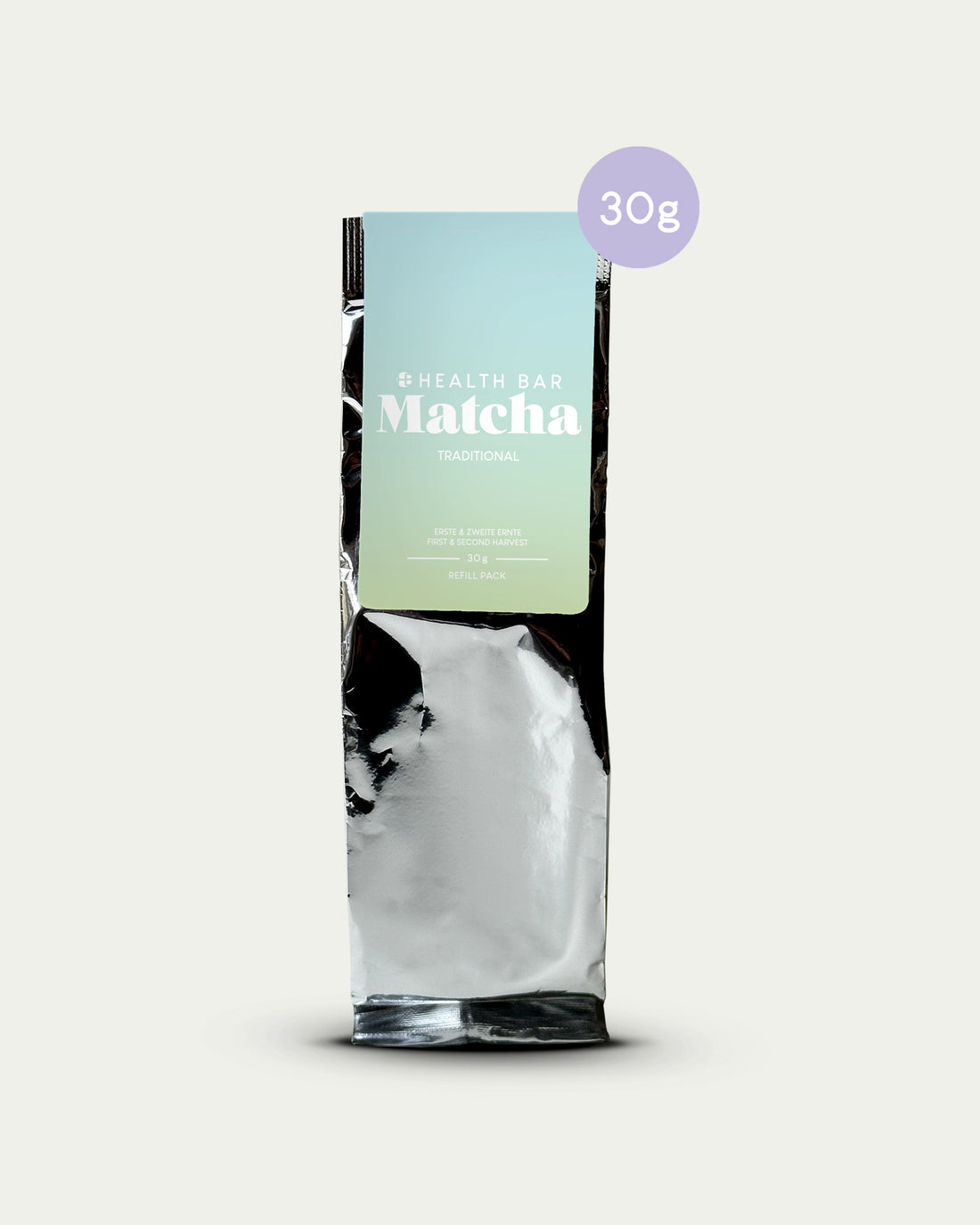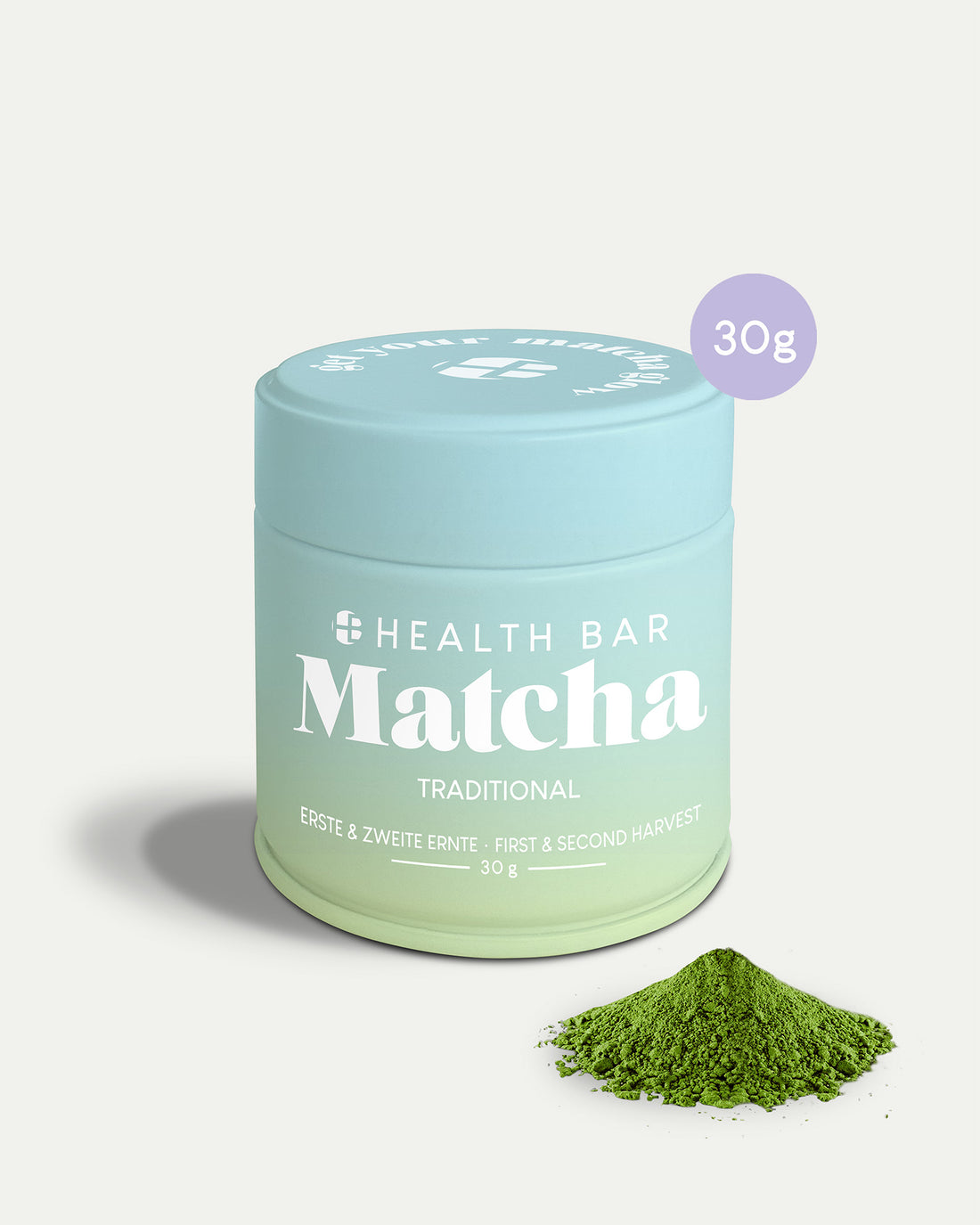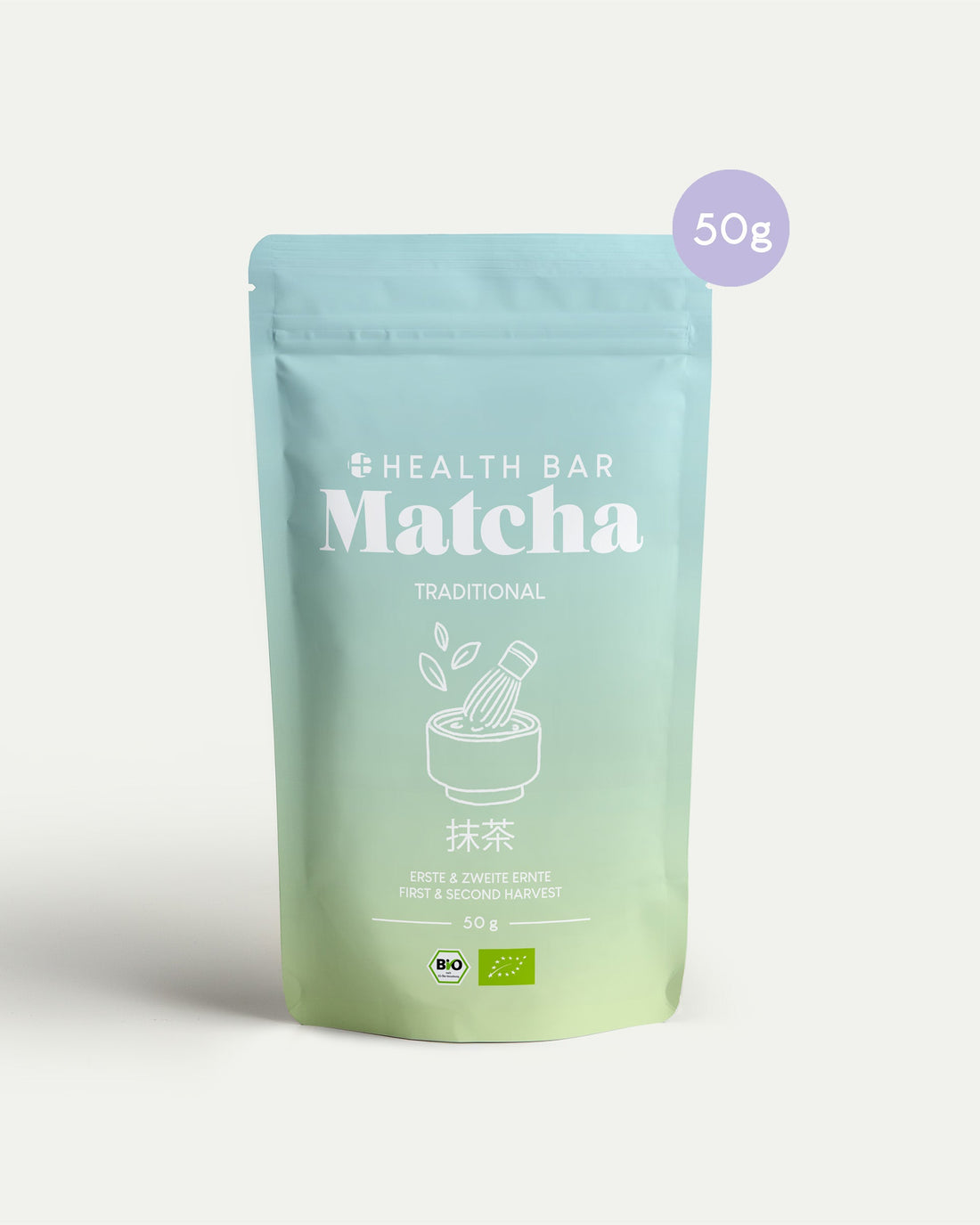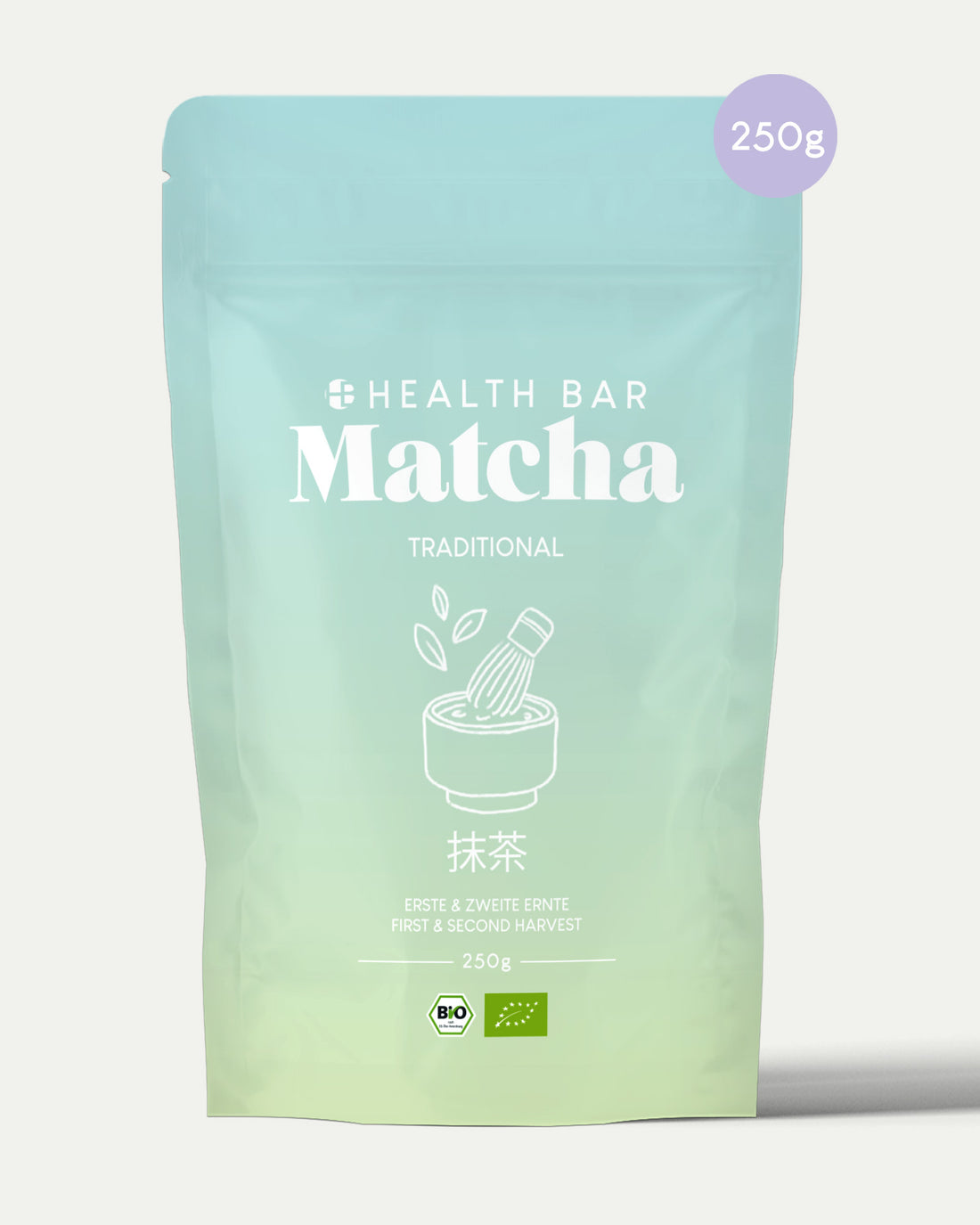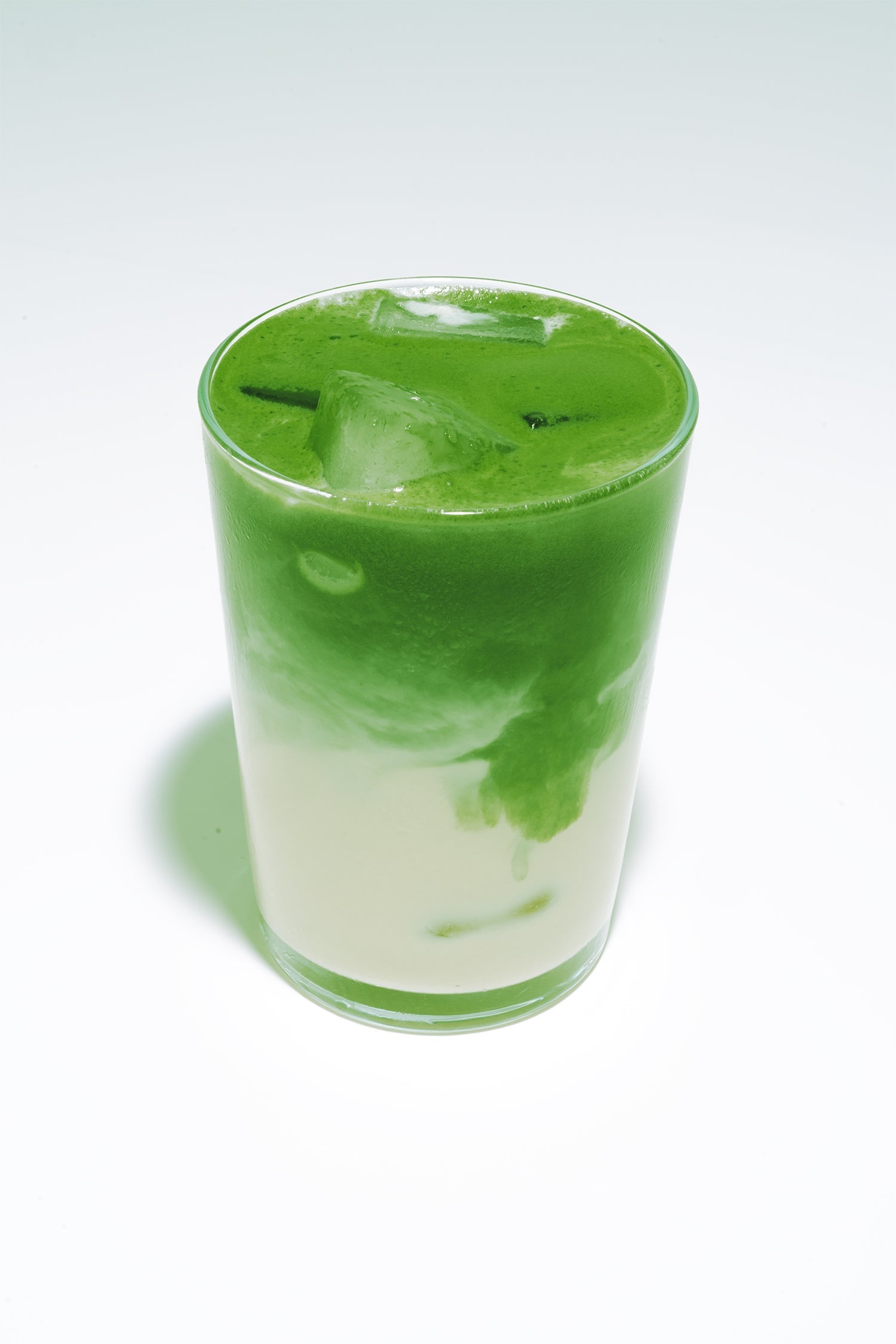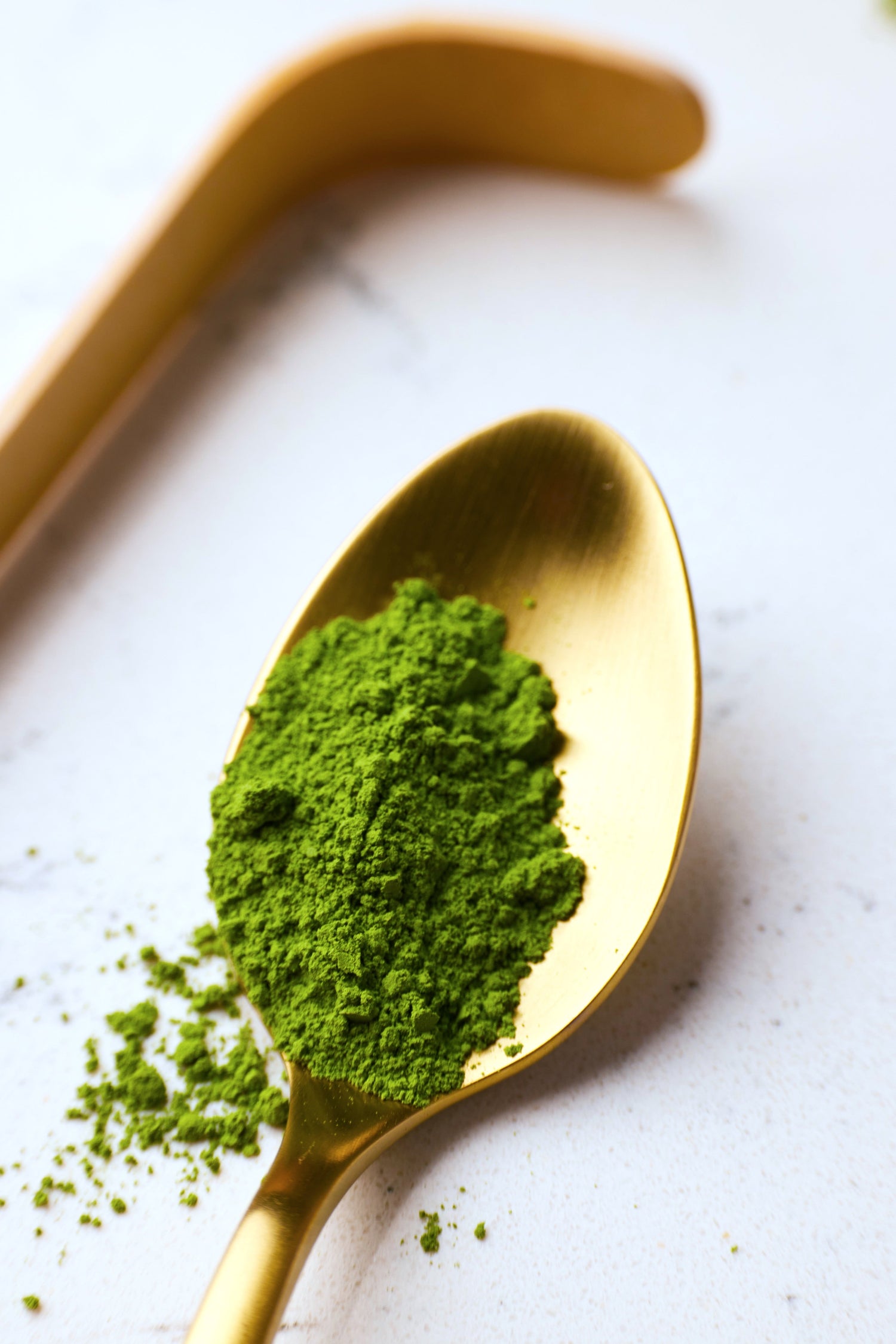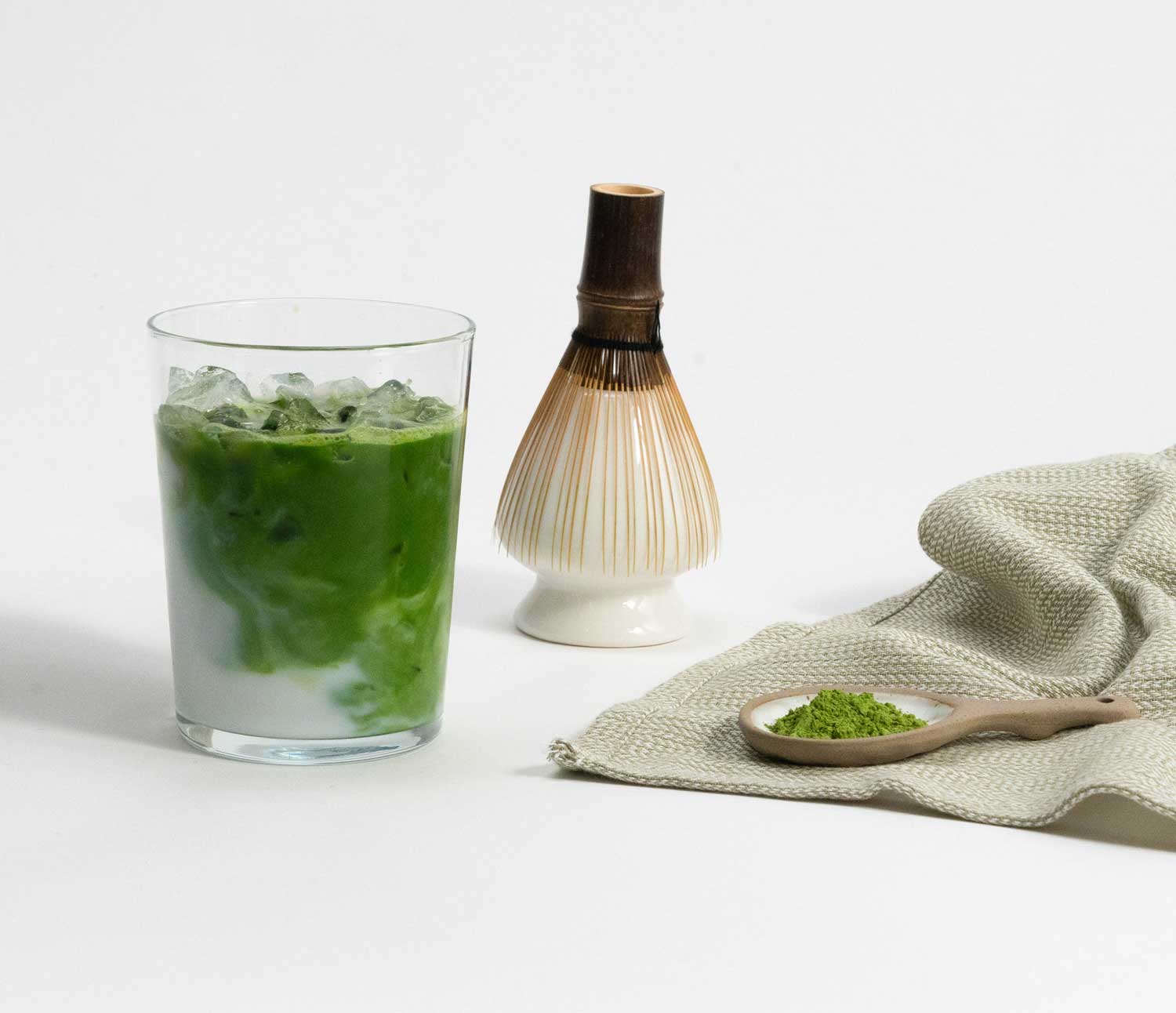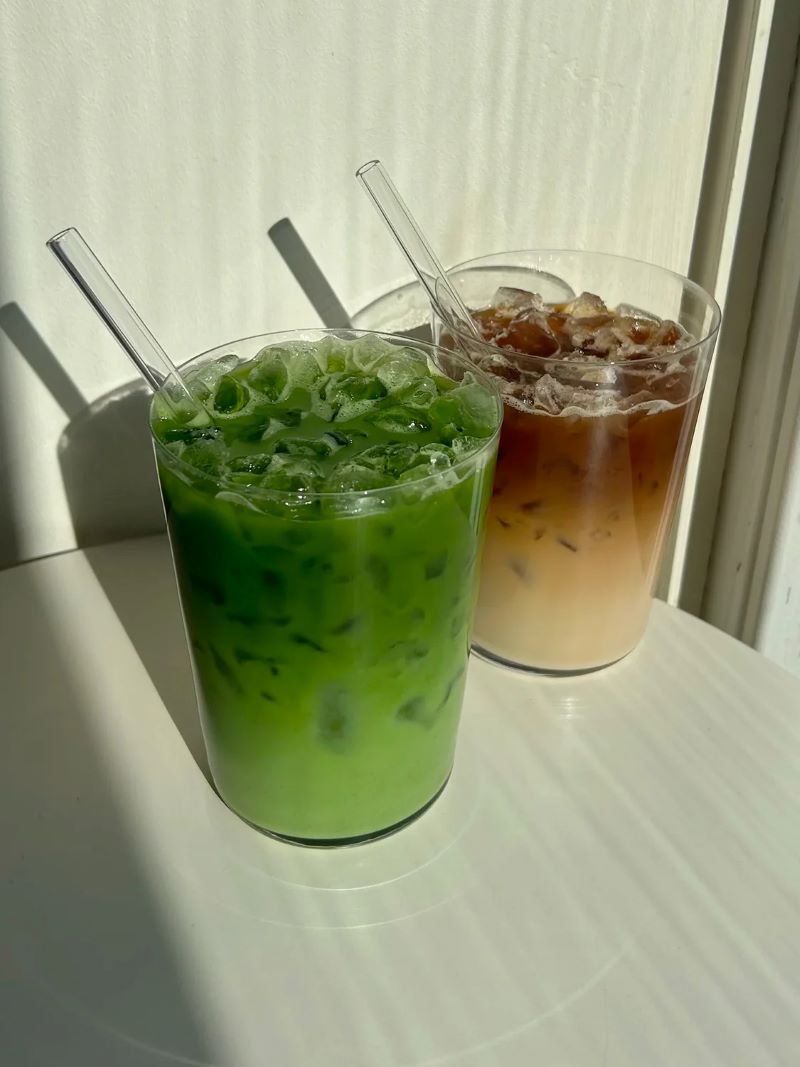
Matcha vs. Coffee
Caffeine and effects in comparison
Coffee is the number one choice when we want to get going in the morning – after water, it's the most consumed beverage worldwide. But its green competition is hot on its heels: Even though matcha tea isn't quite as popular as coffee yet, the superfood is becoming increasingly popular. Its delicate flavor and multifaceted benefits are just two of the many reasons why this fine green tea powder is winning the hearts of more than just tea lovers.
But what does matcha have to do with coffee? It's quite simple: Green tea also contains a certain stimulating substanceWe'll tell you how roasted coffee beans and ground tea leaves are similar and yet different.
Good to know
Caffeine is present in different amounts in tea and coffee. Caffeine in matcha is bound to polyphenolsThese secondary plant substances include a range of natural coloring, flavoring, and defense substances that can be beneficial for you. You can find them in fruits, vegetables, and nuts—and in high quantities in the tea plant. Many people have experienced that Matcha therefore wakes you up more gently than coffee.
Did you know that cocoa also contains beneficial plant compounds? Get a double dose by joining our vegan Matcha chocolate grab it!
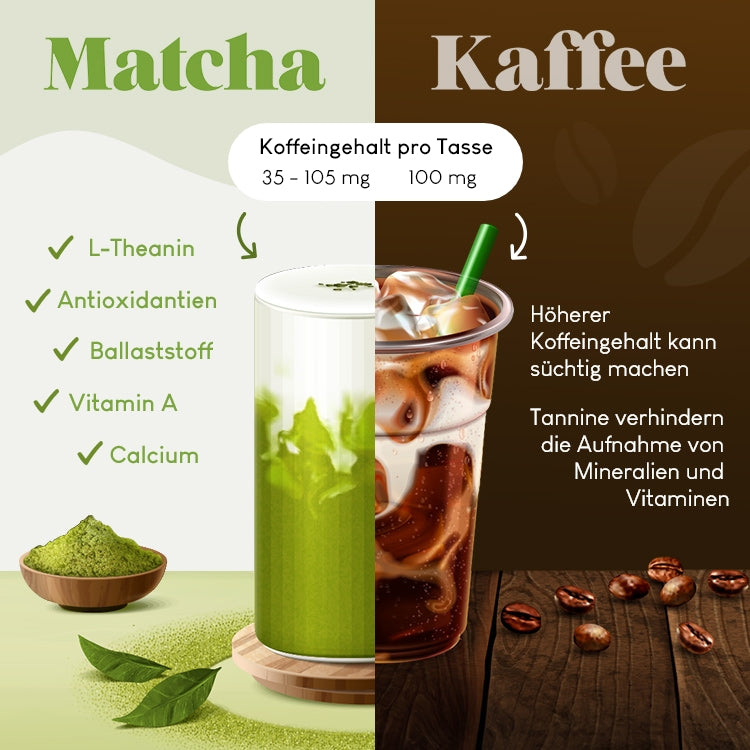
Does matcha have caffeine?
Yes! In fact, not only coffee beans but also the actual tea plant provide caffeine, formerly known as theine.
The caffeine content of coffee and matcha varies depending on the source plant, processing and preparation method. 1 g high-quality matcha powder contains approximately 35 mg of caffeineFor a cup of matcha, you use between 1 and 3 grams of matcha. The following figures are therefore only estimates.
Caffeine content per drink:
- 1 Cup of Matcha: 70 mg
- 1 cup of coffee: 100 mg
- 1 Express Tax: 75 mg
Good to know: Ceremonial-grade matcha contains more caffeine at 3290 mg per 100 g than traditional-grade matcha at 2950 mg per 100 g.
Matcha instead of coffee – it’s worth it!
Are you considering your replacing your morning cup of coffee with matchaThere are many good reasons for this. Even though the roasted bean also contains antioxidants and other valuable substances, coffee consumption is not without risks.

What speaks against coffee consumption?
- If you react oversensitively, you may feel nervousness and Heart palpitations up to panic attacks.
- Coffee can Disturb sleep and cause anxiety.
- The drink makes addictedThe more you drink, the higher your caffeine tolerance becomes—and you need ever-increasing doses.
- Excessive coffee consumption can stomach acid and thus even affect the appearance of your skin.
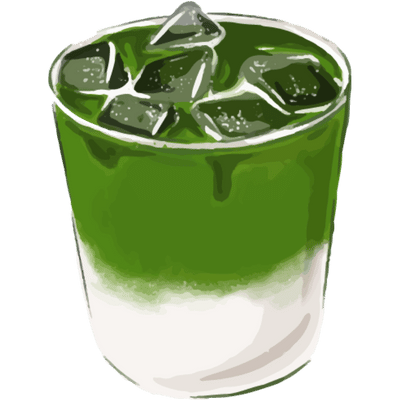
Matcha as a coffee substitute – the advantages
- By using the whole tea leaf, Matcha provides herbal Antioxidants and the amino acid L-Theanine.
- Matcha provides a natural spectrum of plant ingredients
- Because the tea plants grow in the shade, they contain particularly rich in amino acids and chlorophyll. This, by the way, is what gives it its bright green color.
- Matcha powder is made from whole leaves, which you drink. This is how you benefit from entire spectrum of plant substances.
- Matcha can help you provide just as much caffeine like coffee – depending on how much powder you use.
- Many enthusiastic matcha drinkers report that the green tea powder gentler and longer lasting This makes you feel more relaxed.
Matcha tea and the effects of its caffeine
The caffeine content of matcha and coffee isn't that different. Also, if you use more matcha powder for the preparationThen you'll also consume more caffeine per cup. So if you want to reduce your caffeine intake, you should prepare your matcha tea with a moderate amount of powder.
However, there is a crucial difference between coffee and matcha: While you do not drink the ground coffee bean, but only an infusion made from it, you enjoy with Matcha the entire range of its plant substancesThe fine powder from the tea plant's leaves mixes with the water. This way, you not only consume the caffeine it contains, but also the full spectrum of its valuable plant compounds. Matcha helps you wake up and provides you with its full range of green power ingredients! These include: important amino acids, antioxidants, vitamins, minerals and bitter substances.
The Basics: Matcha & Coffee
It's almost a cult favorite: coffee junkie vs. tea fanatic – some are unresponsive before their first cup of the deep, black pick-me-up, while others swear by the comfort of a fragrant, steaming cup of green tea on rainy days. Matcha bridges the gap between tea and coffee and is no longer just a traditional drink in the land of the rising sun. Here are the quick facts:
-
coffee
The coffee plant is cultivated primarily in Africa and South America. After roasting and grinding, its beans are transformed into a powder that we pour hot water over—in countless different ways.
-
Matcha
The tea plant, in turn, is native to Asia, especially Japan and China. Its leaves are used to produce not only green tea, but also white and black tea. For high-quality matcha, the most delicate leaves of the first harvest are processed into a silky powder and also infused with water—but you drink the powder as well. Matcha, too, is incredibly versatile.
FAQ: Matcha vs. Coffee
Is matcha a stimulant?
Yes, if caffeine works for you. Just like coffee, matcha also contains this stimulant. The substance can help you wake up in the morning or during the afternoon slump when you need an energy boost.
How much caffeine is in a cup of matcha?
You use approximately 1 to 3 g of matcha powder to prepare one cup. This means the caffeine content is around 35 to 105 mg per cup of matcha.
Does matcha contain less caffeine than coffee?
It depends on how you prepare your matcha or coffee. On average, a cup of matcha (70 mg caffeine) contains about 30 mg less caffeine than a regular cup of coffee (100 mg caffeine).
Does the caffeine in matcha work differently than in coffee?
Experience shows that matcha can actually be gentler on you than coffee. This may be because the caffeine in green tea powder is bound to polyphenols. Try it for yourself!
Is matcha healthier than coffee?
In addition to caffeine, matcha provides you with a wealth of valuable plant compounds, which you absorb entirely thanks to its special preparation method. Because you drink the entire leaf of the tea plant.
The different Matcha variants
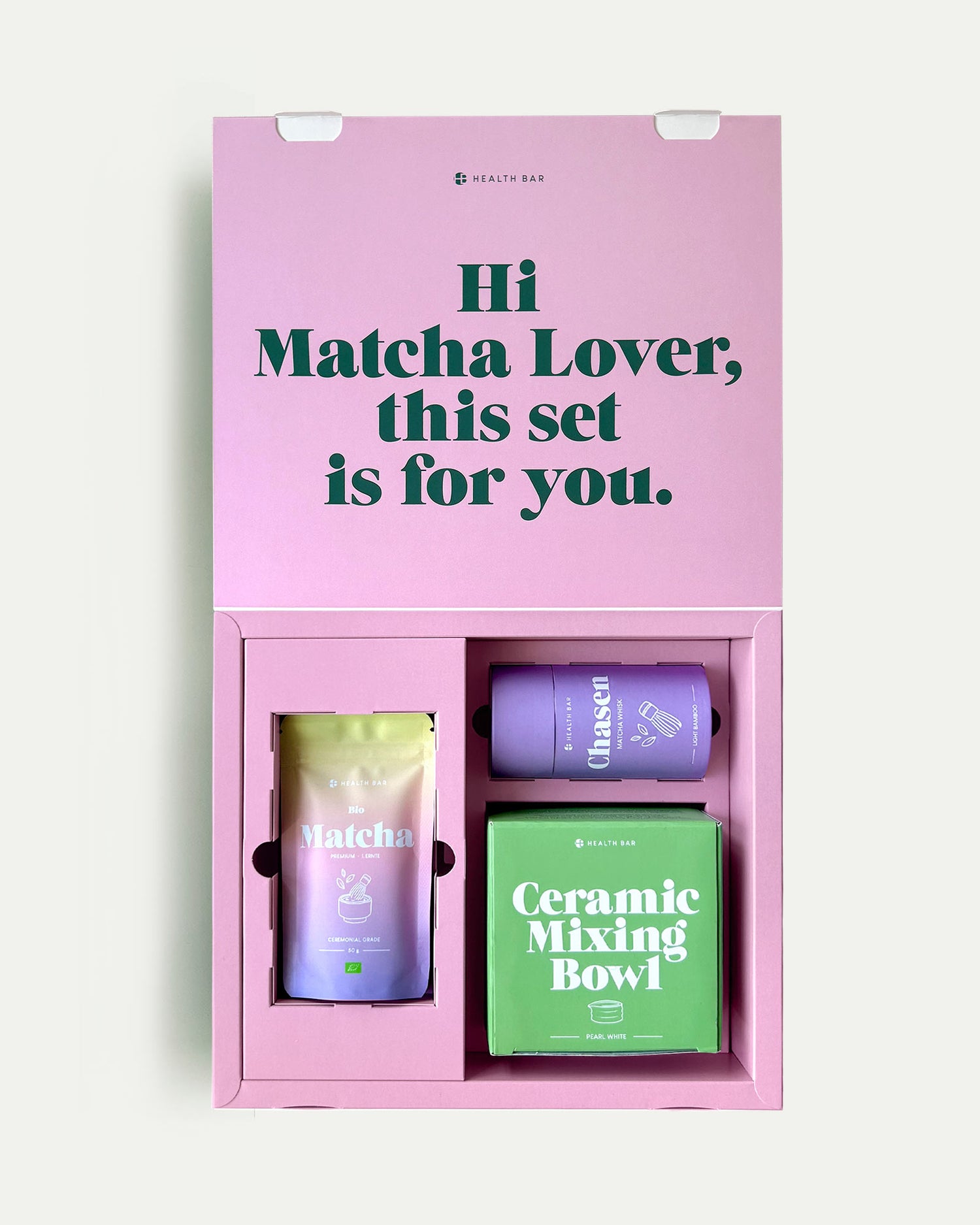
Our Matcha Kits
Perfect for switching to Matcha
- Organic Matcha Powder
- Matcha whisk made of bamboo
- handmade matcha whisk
Also available as Starter Kit and Travel Kit



